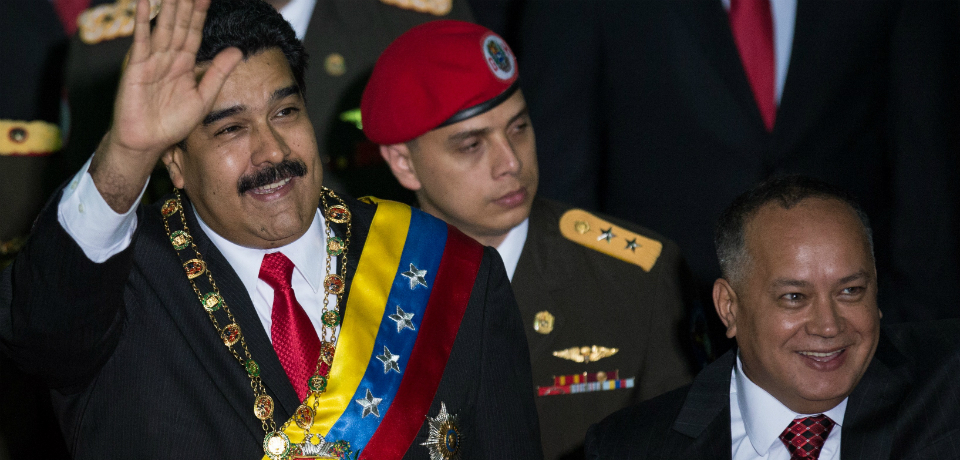By Anton Moggré
January 24, 2015 was another destabilizing day for the Maduro regime in Venezuela. In addition to the severe economic and social problems Venezuela suffers from, the country has been dealt another massive blow to their standing in the international community.
Diosdado Cabello is one of the most influential persons in Venezuela’s new ‘socialist’ elite, as a speaker of the national parliament and with strong connections to the military. One of his former bodyguards decided to surrender himself to U.S. authorities to reveal delicate information about the apparent massively corrupt networks, and drug trafficking that mister Cabello sustained during his ruling.
Not surprisingly, the Venezuelan government immediately rejected the allegations of Leamsy Salazar, the ex-bodyguard of Cabello and former security chief of the Socialist Party, stating that “imperialist hands are behind this”.
Nonetheless, allegations of government involvement in criminal activities have been ongoing for years now, and there are many examples where it almost seems impossible that Venezuelan authorities would not have collaborated with infamous drug kingpins. One example is the discovery of a stunning 1.3 ton of cocaine in an Air France flight to Paris last October 2013. Soon, it became clear that the Venezuela’s National Guard (GNB) was extensively involved in this operation and some investigations were announced, but ever since then no judicial procedures have been activated by Venezuela’s prosecution office.
Salazar, due to his close position with the most influential people of the country, is considered to be an incalculable witness for the alleged existence of a state-run drug cartel, also known as ‘The Soles Cartel’ – a reference to the sun emblem that is present on the uniforms of Venezuelan soldiers.
Little is known about this illegal organization, partially because of the stringent control on media and press in the nation, but rumors of extensive entanglement of high-ranking military and political figures are present for years. To summarize, ‘The Soles Cartel’ consists of Venezuelan military people who are largely involved in drug trafficking, importing primarily cocaine from Colombia and subsequently distributing it to Mexican cartels, who continue the trade line to Europe and the United States. Due to improved security circumstances in Colombia, and almost no state presence along the Colombian-Venezuelan border, drugs are now ‘detoured’ through Venezuela.
The State of Venezuela is considered to be one of the most corrupt of the world, ranked 161st out of 175 countries, according to Transparency’s International’s 2014 Corruption Index.
It is currently insinuated that Mister Cabello plays a pivotal role in these disconcerting illicit activities, which would degrade this South American country as a malevolent ‘narco-state’. It would not come as a surprise though, as Cabello has been involved in the military since his juvenile and closely collaborated with, the now-deceased, Hugo Chavéz to establish ‘The New Socialism’ system in Venezuela’s society. Moreover, several sources and events indicate the close ties several high-ranking Venezuelan officials have with certain drug cartels, as revealed reporter Emili Blasco in an article for the Spanish website ABC.
The surge of Salazar forms an imminent threat to the comfortable position Cabello enjoyed so far, putting the Venezuelan government, yet again, in an embarrassing position. It is currently unknown how the U.S. State Department will react to these new developments, but it is noted that U.S. authorities have already been investigating the Venezuelan government for purported illicit activities with criminal organizations, and is likely come up with counter activities.
Nonetheless, it is to be hoped that this new political crisis might lead to an improved situation for the Venezuelan people, who are the greatest victims of a deficient State system that currently cripples the country apart. Humongous queues to enter a supermarket, over 25,000 violent deaths in one year alone (2014), an inflation rate of 64% during 2014, and falling oil-prices that directions the country to a bankruptcy are critically menacing this beautiful country. Far-stretching reforms are needed to heal this afflicted nation, and Salazar’s confession may be a good start.
Anton Moggré, class of 2016, is a Social Science major from Utrecht, the Netherlands

